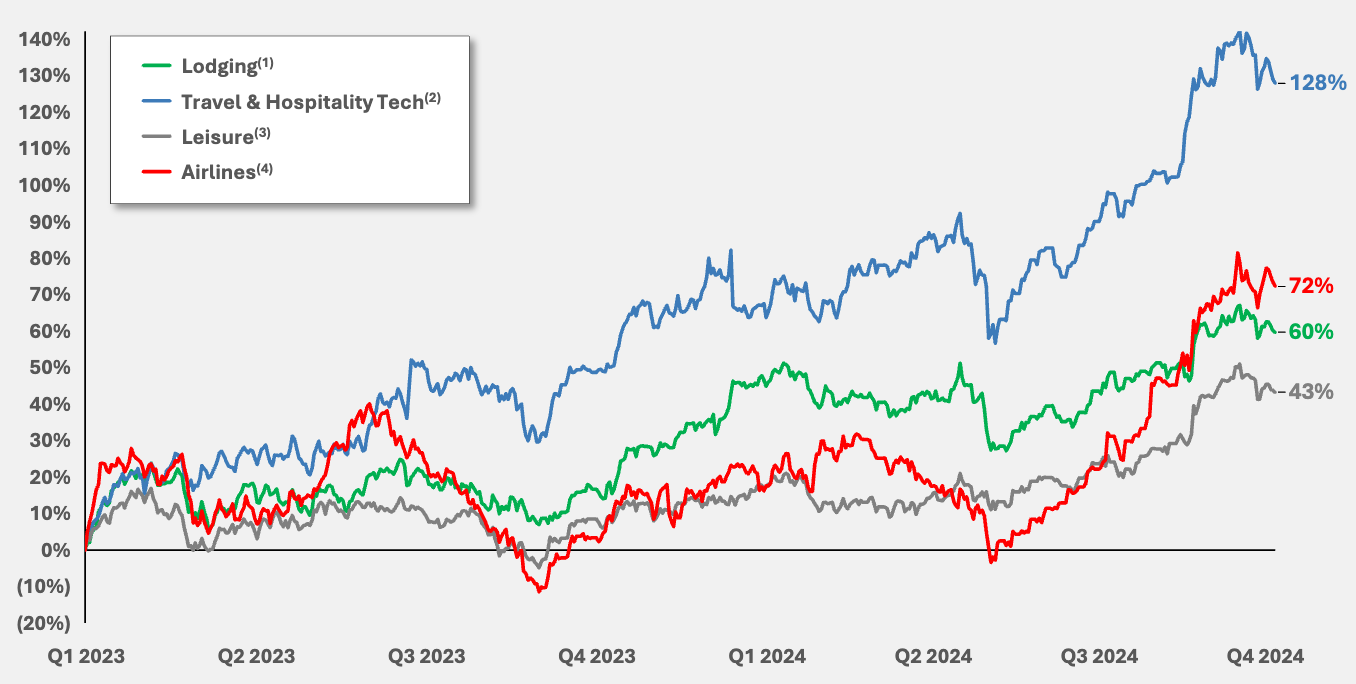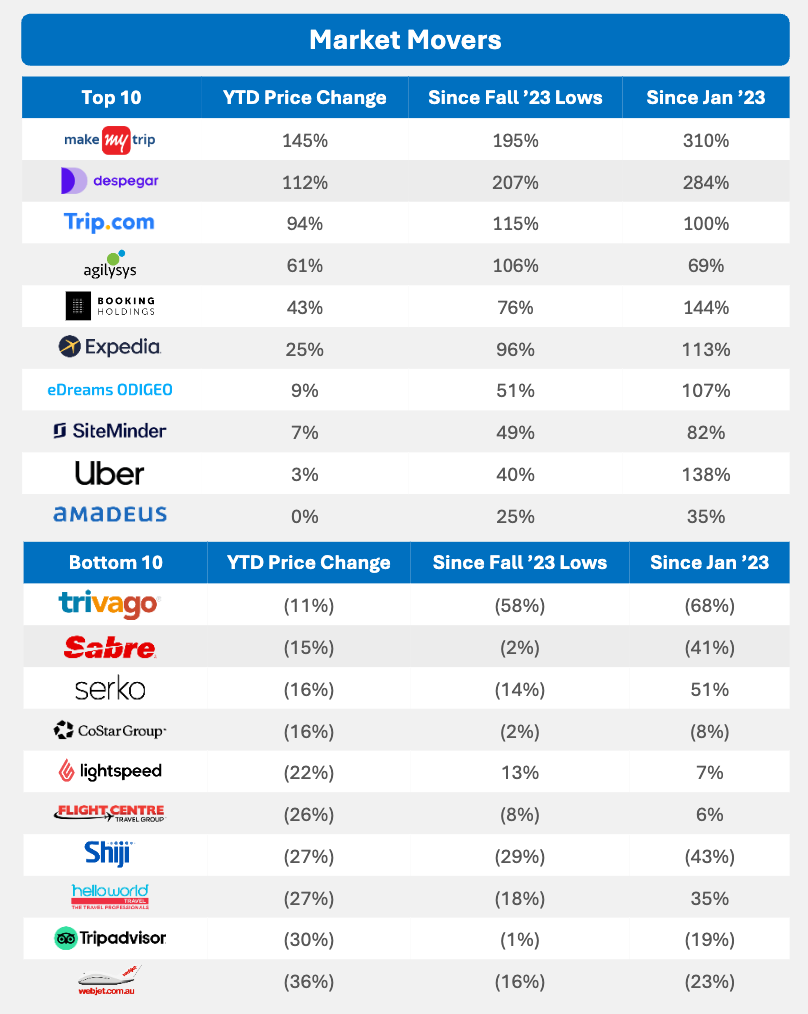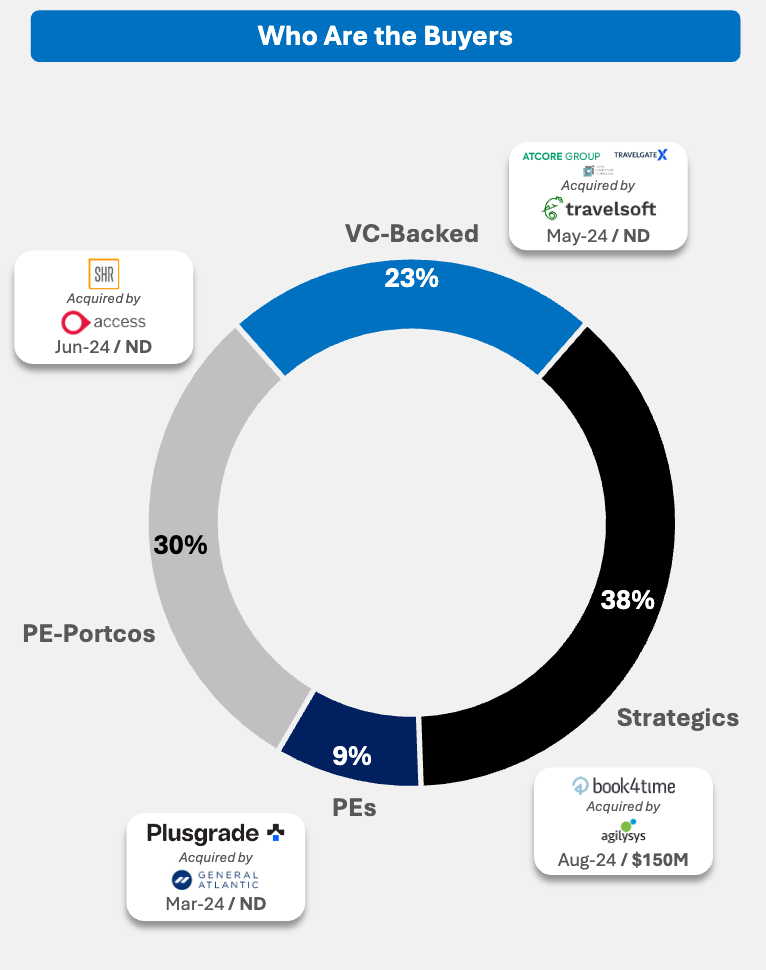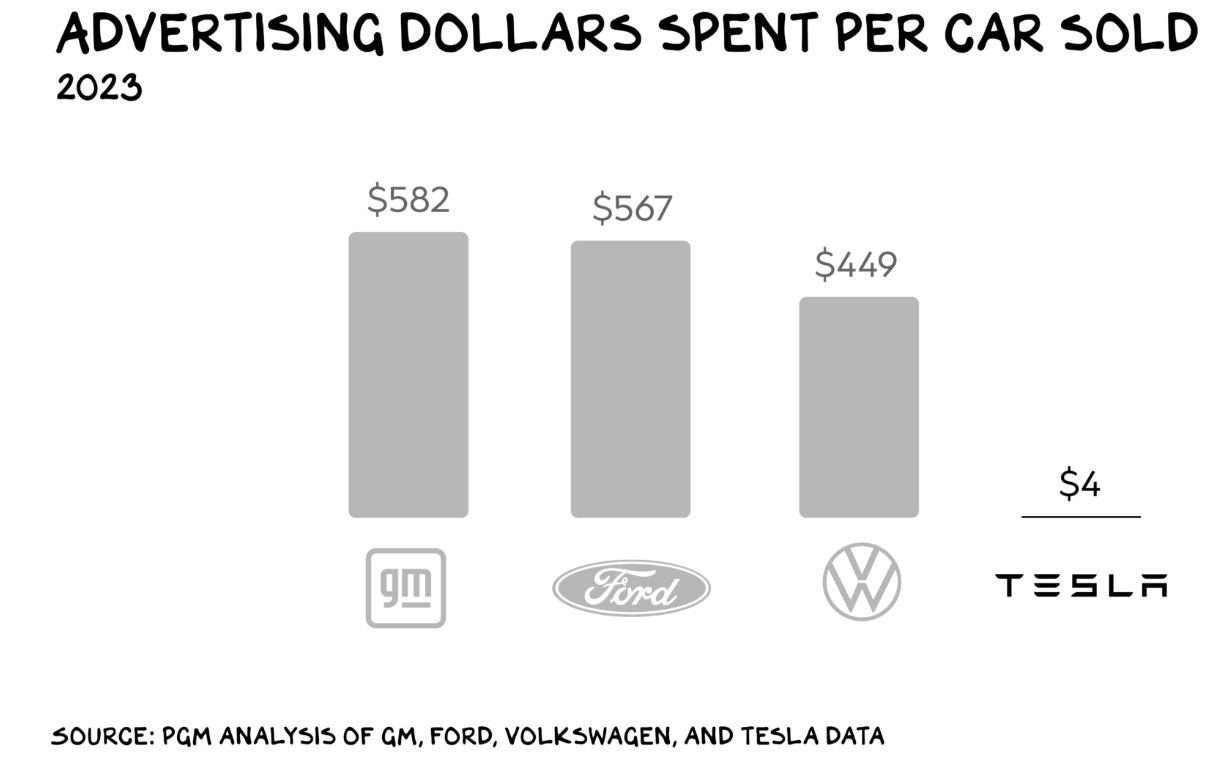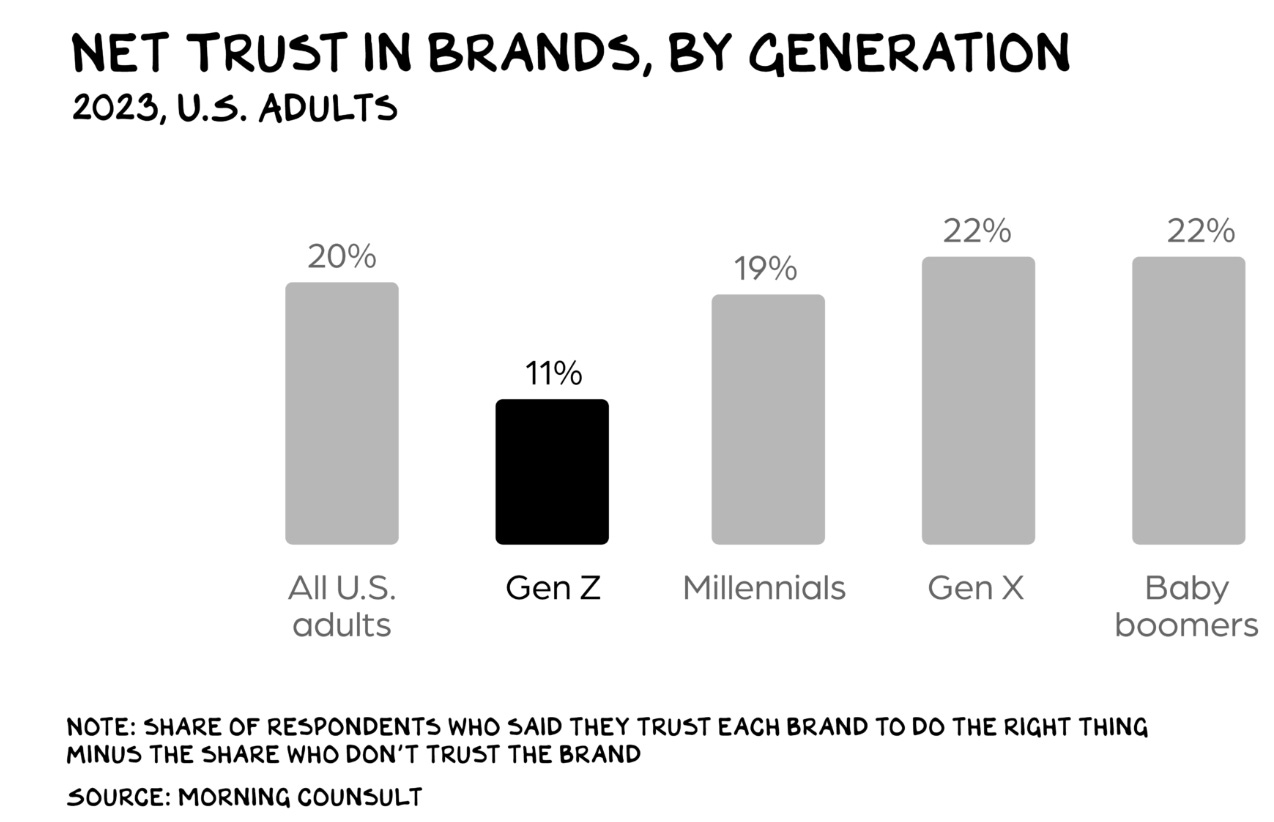The human element is reshaping tech leadership, with personal brands outperforming corporate messaging and tech CEOs leading the way. However, travel executives are lagging behind this trend (with one notable exception). In other news, AGC Partners shared with me an early version of their 2024 Travel M&A and Valuation report, and I’ve highlighted some of the key findings in this version.
because Propelik Sponsor this newsletter:
Still planning your travel marketing strategy for 2025? Check out Propellic’s five key principles for effective travel marketing:
1. Prioritize bookings as the ultimate measure of success.
2. Target the right group of travelers to increase engagement.
3. Tailor marketing campaigns to each stage of traveler intent.
4. Enhance resilience through diversified and integrated channels.
5. Optimize performance-driven creative to increase conversion rates.If you want to improve your approach and achieve real results, this is worth reading.
Travel and hospitality technology stocks have rallied sharply since 2023, with online travel agencies and exchange businesses leading the gains as investors bet on continued strong travel demand.
(This and the next few stories are based on recently updated AGC Partners Travel and Hospitality Technology Market Report.)
Public market investors are highly focused on high-quality cash flow and growth.
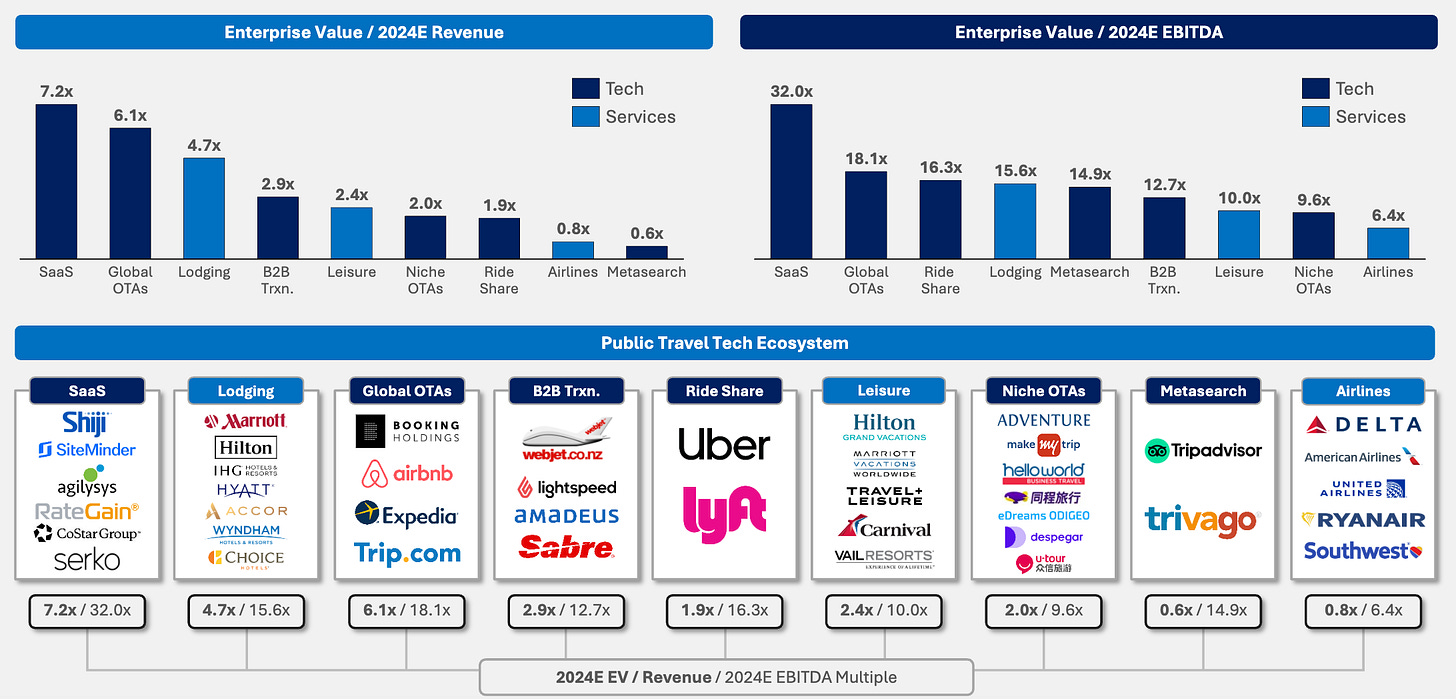
For detailed P/E and financial data on 45 travel companies in the travel industry (SaaS, global OTAs, metasearch, regional OTAs, B2B transactions, lodging, airlines and business travel), see pages 25-27 of the 2017 Report . AGC Partner Report.
In 2024, the hotel industry will account for 39% of the tourism M&A market, with PMS/operations being the most popular area in the hotel industry, followed by marketing.
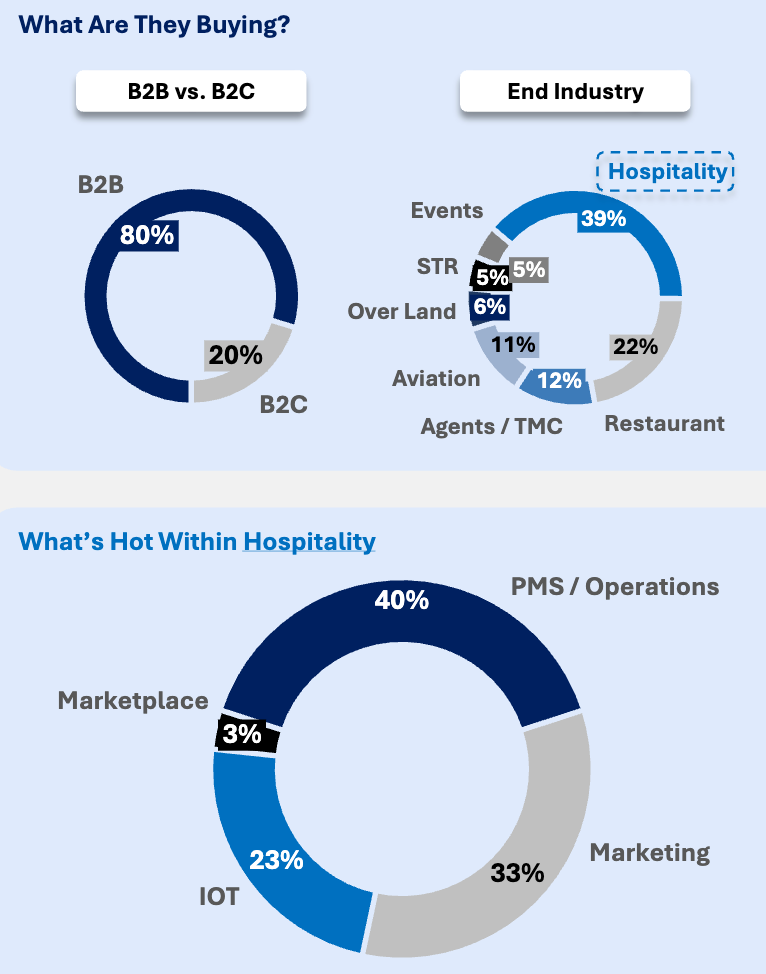
Many public travel companies hold more than $1 billion in cash, but they have completed only 58 transactions since the COVID-19 pandemic, with strategic buyers accounting for only 38% of acquisitions in 2024.
this AGC Partner Report The 30 most active buyers are listed, including strategic players such as HomeToGo, Holidu and Amex, as well as venture capital firms such as Highgate, Thayer Ventures and Andreessen Horowitz. See pages 23-24 of the report for full details.
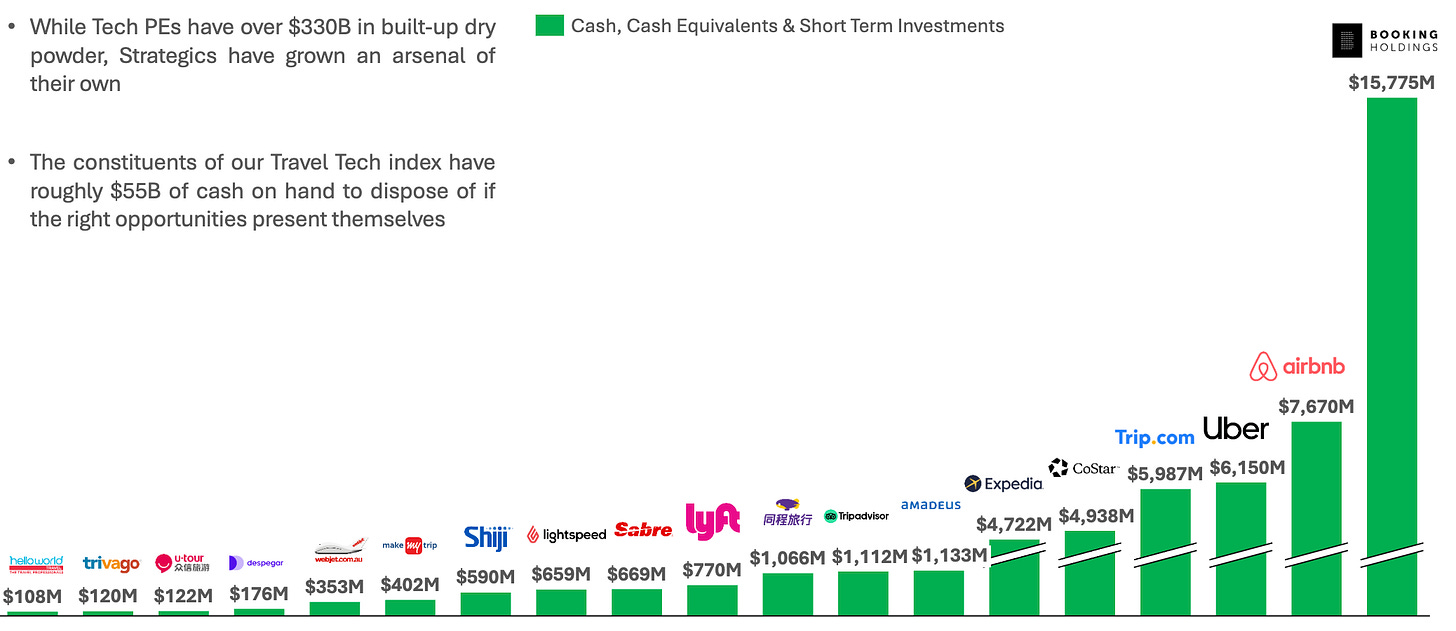
Ed Elson, professor at G Markets, highlights a key shift in consumer behavior: We crave human connection, not corporate messaging. With Gen Z spending 109 days a year on screens, and 12% of Americans saying they have zero close friends (up from 3% in 1990), we’re seeing the rise of “parasocial” relationships. Content creators like MrBeast racked up over 1 billion hours watched last year, more than any top show on Netflix, while Joe Rogan’s podcast attracted three times the prime-time audience of CNN and MSNBC combined.
From the ad-free Tesla marketing pioneered by Elon Musk to Mark Zuckerberg’s MMA journey, tech leaders are becoming the voices of their companies because audiences trust people , instead of the logo. Read+.
As we reflect on the winners and losers of 2024, we will divide them into two categories: those who exploit loneliness and those who do not. We will realize that in this lonely society, we find that a person is more worthy of love than a brand.
The corporate world has begun to realize the power of people, but this movement was started by Elon Musk a few years ago. From the beginning, Musk knew he was Tesla’s greatest commercial. That’s why the company never runs ads… One wonders how Tesla gets a 10x valuation premium over its peers while only spending $4 on advertising per car sold. The answer is Elon Musk. — Ed Elson
I read an interesting Article by Omri Barak On how personal branding is reshaping technology communications. Major tech announcements increasingly come directly from CEOs’ personal social accounts rather than corporate channels. For example, Microsoft’s Satya Nadella showed off GitHub updates on LinkedIn (wearing a hoodie); Instagram’s Adam Mosseri introduced Movie Gen to his 2.8 million Instagram followers; and OpenAI’s Sam Altman also announced via him in just two weeks ’s personal Twitter account shared 12 announcements.
Other tech leaders have followed suit, with Mark Zuckerberg evolving from his signature gray T-shirt to sharing MMA training and Meta updates on his personal platform.
The strategy for entrepreneurs and founders is clear: If you’re not connecting with your audience personally, you’re missing out. As technology leaders have shown, your face can be your company’s most powerful brand.
While tech leaders are leveraging their personal brands, most publicly traded travel industry CEOs remain noticeably absent from social media. The exception is Airbnb’s Brian Chesky, whose active presence on Twitter (630,000 followers) and Instagram (116,000 followers) has proven to be very effective, with his personal posts about Airbnb generating hundreds of Thousands of impressions, compared to tens of thousands of impressions on an Airbnb business account.
Chesky’s success demonstrates that a strong executive social media presence can complement and amplify a company’s marketing efforts, potentially increasing brand awareness and customer loyalty. There is a clear opportunity for travel industry CEOs to grow their brands by building an authentic presence on social media.
According to Simone PortoThe EU’s Digital Markets Act (DMA) is creating an unexpected imbalance in travel distribution. Google’s strict compliance resulted in the removal of key features such as hotel maps and flight information, resulting in a 30% drop in direct hotel booking clicks. Simone, meanwhile, noted that Booking.com has implemented only surface-level changes while retaining practices that limit hoteliers’ independence.
Recent tests conducted by Google in Germany, Belgium, and Estonia showed that removing hotel features caused traffic to European hotels to drop by more than 10% and increased user frustration, while having little impact on OTA traffic. This appears to be a case of regulatory capture; regulations intended to level the playing field have instead strengthened the position of online travel agencies while making it harder for hotels to reach customers directly.
The results may not be entirely accidental. Booking.com, headquartered in Amsterdam, is one of Europe’s few major tech successes. With Brussels’ powerful lobbying power and alignment with the EU’s interest in creating a European tech champion to counter U.S. dominance, the DMA’s uneven impact on Google and Booking.com may reflect more about political priorities than Competition issues.
Türkiye has quietly become the hair transplant capital of the world, capturing a significant share of the growing $1.9B medical tourism market. More than 500 clinics in Istanbul alone combine medical expertise with luxurious hospitality, offering treatments for $3-4,000, compared with over $10,000 in Beverly Hills or Manhattan.
The recipe for success combines several ingredients: skilled doctors, competitive prices (there are eight times as many clinics per capita as Americans) and smart packaging – procedures often include stays at high-end hotels and concierge services. The results are impressive: 1.1 million medical tourists visited Türkiye in the third quarter of 2024 alone.
This shows how countries can dominate specific service areas by building ecosystems that combine technological expertise, cost advantages and quality customer experience. It also reminds us that consumers will travel great distances for the right combination of quality and value, even for elective procedures. Read+.
in the past 12 months Tourism Science and Technology Working Committee…
Top 5 searches by location
– remote
– Barcelona
– London
– Amsterdam
– New York
Top 5 positions applied for
– Travel Collection | Country General Manager
– Flyer | Product Manager
– Propellant | Business Development Director
– Zhonglv|Account Manager
– Zeni | Content Writer
Top 5 job functions
– Sales and Business Development
– Marketing and Communications
– product
– operations
– project
→ Explore all 1,025 open travel technology jobs Tourism Technology Essentials Recruitment Committee Now.
-
Supervision | revenue operations manager | Krakow, Poland
-
Flight Center Travel Group | Scott Dunn – Senior Vice President, Luxury Travel |New York, NY| $220,000 – $240,000
-
Travel Collection| business development executive |Remote| $110,000 – $130,000
-
Zhiyoutianxia.com Director of Brand Analytics at Expedia |Austin; Seattle| $224,000 – $358,500
-
Air Help | Senior Data Analyst |Warsaw, Poland
📩 For monthly updates on the latest roles, please subscribe Travel Technology Work Newsletter
💼 Employers: If you would like to list your job here, Fill out this quick form
Reach a focused audience of travel technology professionals by sponsoring the Travel Technology Essentialist newsletter. If you are interested, please fill in this form learn more.
If you’re a startup looking to raise a round of funding (from pre-seed to Series D), I can help (for free). Tourism Investor Network is a private platform where I recommend innovative travel startups to investors and innovators. If you are interested, please start from fill in this form.
If you like Travel Tech Essentialist, please consider sharing it with your friends or colleagues. If you haven’t subscribed yet, please join us here:
As always, thank you for trusting my inbox.
Mauricio Prieto



